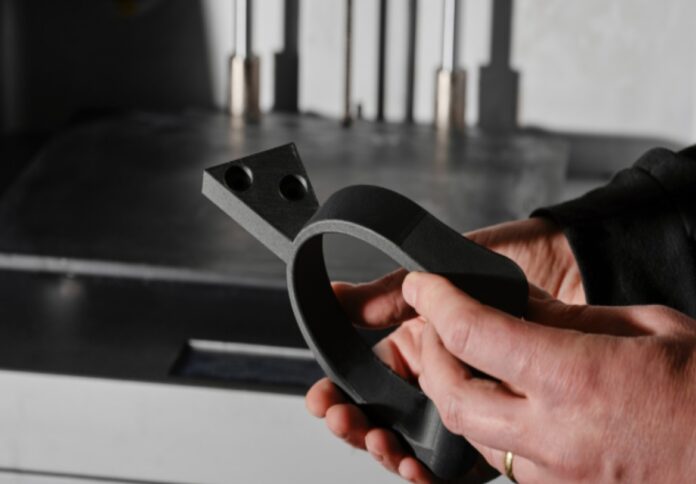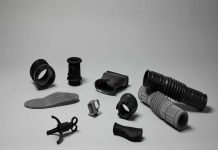
Article by Richard Elving, Senior Director, Markforged
The Australian Meat Processor Corporation (AMPC) is the research and development corporation for the red meat processing industry in Australia. Its mission is to drive world-class innovation, adoption, and strategic policy development through genuine partnerships built on trust.
In a high-volume environment like a processing plant, parts such as bolts and rollers can wear or break. As in any industry, time is money and, if a part fails, the result is lost productivity and expensive downtime until the part can be sourced and replaced.
AMPC collaborated with Konica Minolta Australia and Markforged in a world-first trial of a 3D printing service model. The trial aimed to help red meat processors across Australia benefit from printing equipment parts and revolutionizing equipment maintenance to help ensure a continuous supply of meat products.
The collaboration involves a three-year, multi-faceted program so that these benefits can be realized at meat processing plants across Australia. Staff can create functional prototypes for assessment as well as produce industrial composite parts for end use. Konica Minolta Australia provides on-site support to help meat processors understand and leverage the technology.
As part of this program, The Casino Food Co-op was identified as a facility that could benefit from 3D printing. Since 1933, The Casino Food Co-op has been Australia’s largest farmer-owned, world-class meat processing co-operative. Located in Casino, in the Northern Rivers region of New South Wales, the company processes 1,200 head of cattle per day and employs more than 1,000 people from the surrounding area.
Three areas needed to be addressed within The Casino Food Co-op facility. The first was the hinges on the hundreds of label printers used to produce thousands of labels a day.
Brian Armstrong, draftsperson and project support officer of The Casino Food Co-op, described the challenge: “The plastic hinge deforms and breaks after many years of use. Because the part was discontinued by the manufacturer, the only option would be to replace all the label machines, which would be extremely costly.”
The next area was the leather tannery drum, which removes hair and fat before the leather is dyed. A gear in the tannery failed, which resulted in leather production stopping until a replacement part could be manufactured.
“The impact of stalled production was significant, costing tens of thousands of dollars of product output on the tannery a day,” Armstrong recalls. “The two gears required to keep the machine operational were printed and fitted within 18 hours so there was no loss in productivity.”
The final area where 3D printing was trialled was the fan blades on the evaporators that optimize the temperature in the cooling rooms. If one blade becomes unstable, the whole evaporator breaks apart and the cool room can’t perform at optimal levels. Because the original equipment manufacturer for the evaporators was no longer in operation, the cost of manufacturing new blades was significant.
“Without all cool rooms at full use, The Casino Food Co-op was potentially at risk of not being able to deliver product at full capacity, which would impact our commitment to our partners,” Armstrong pointed out.
Being able to quickly print a fan blade for the cool room evaporators also delivered significant cost savings and risk mitigation to the business.
Previously, the co-op would need to commission a steel manufacturer to make a replacement blade at a cost of up to $10,000 each. Meanwhile, meat would need to be moved to where the cooling was working as it should. Now, 3D printing a replacement blade takes just days and costs a fraction of the price of a new steel blade, providing significant benefit to the business.
With the 3D printing solution from AMPC, Konica Minolta Australia, and Markforged, The Casino Food Co-op was able to solve these challenges with relative ease and prevent costly downtime across its operation.
Brian Armstrong said, “Finding a solution for these challenges was essential. All of the applications we have used the 3D printer for are pivotal to The Casino Food Co-op for equipment maintenance and operation, helping us prevent unplanned downtime and meet our supply contracts.
“We couldn’t have achieved this without the support from Konica Minolta Australia and the Markforged X7. The knowledge of the Konica Minolta Australia team meant we had a lot of support along the way in creating solutions that met our needs. The possibilities for 3D printing in meat processing are endless and we look forward to seeing how we can continue to transform with 3D printing into the future.”




















